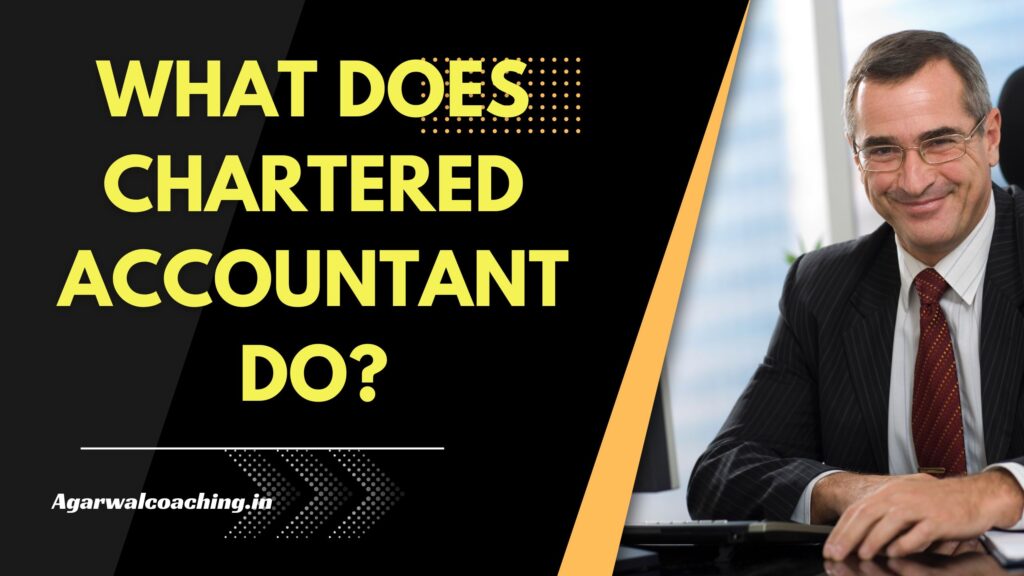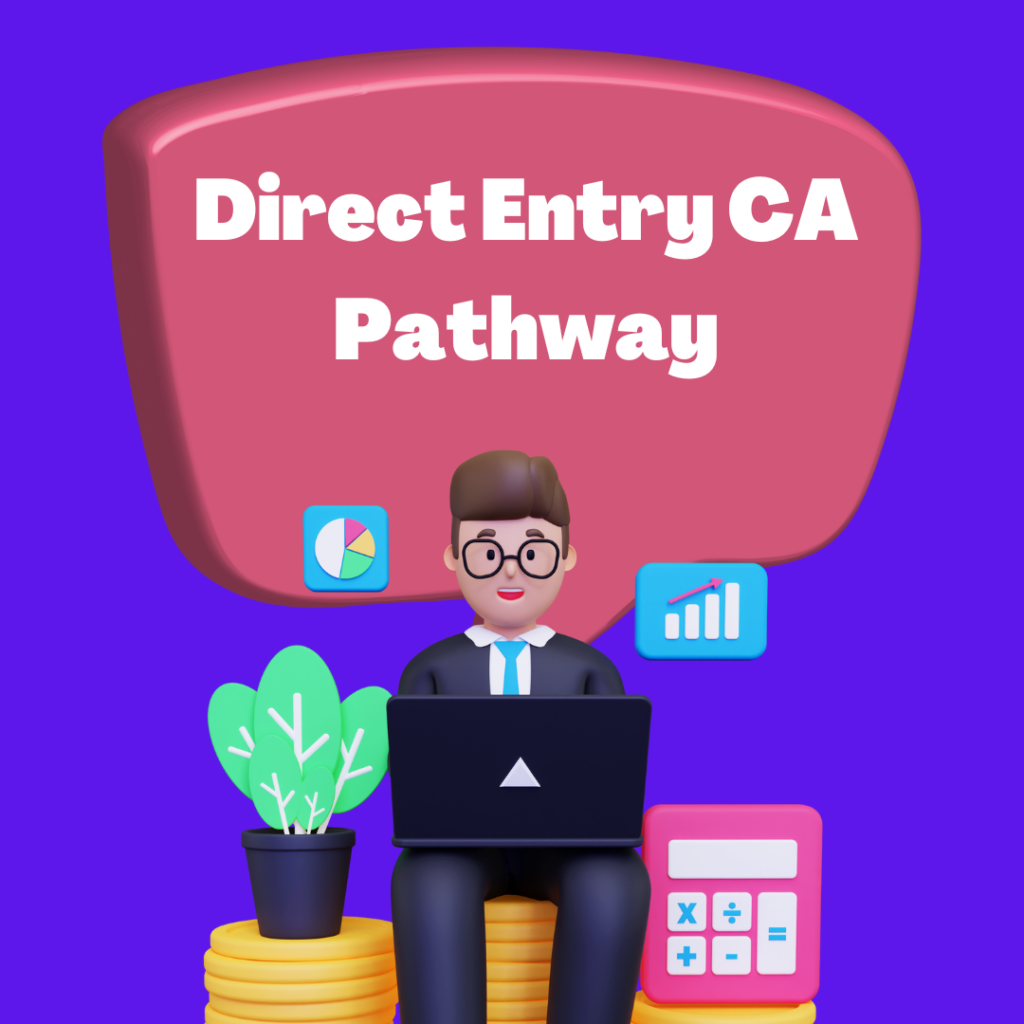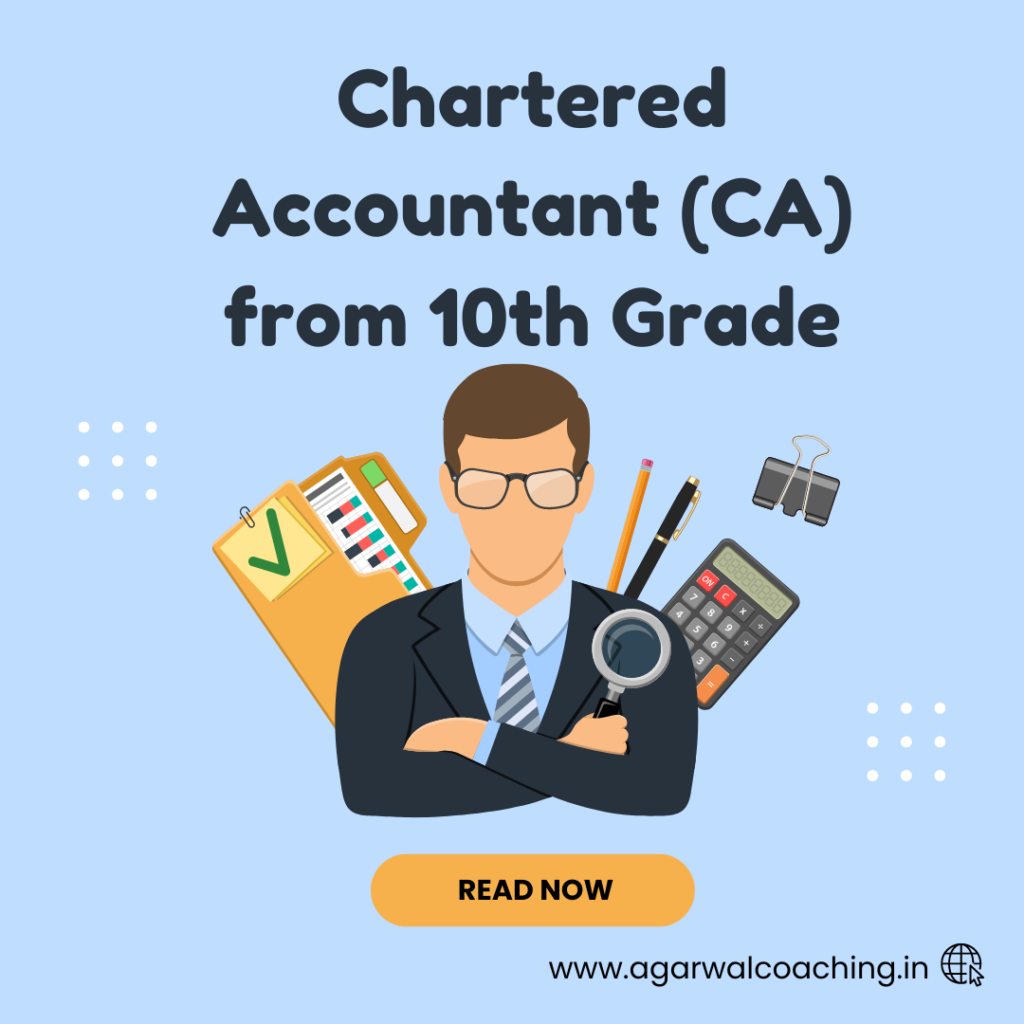
The allure of substantial compensation and esteemed reputation frequently lures numerous individuals toward the field of chartered accountancy. If you possess confidence in handling numbers and wield robust analytical abilities, the path of becoming a chartered accountant (CA) might captivate your interest. Embarking on a journey to this profession begins with familiarizing yourself with its intricacies. In the following discourse, we provide insights into the role of a chartered accountant and present a comprehensive, sequential manual detailing the pursuit of this career path.
What Is A Chartered Accountant?
A chartered accountant is a globally acknowledged financial expert responsible for overseeing budgets, conducting audits, managing taxes, and devising business strategies on behalf of clients. Chartered accountants have the flexibility to work with corporations, governmental bodies, and individuals. Their primary role involves delivering proficient financial guidance and aiding clients in effectively handling their finances. Possessing the chartered accountant designation authorizes individuals to provide expert financial consultation and maintain accurate financial records.
What Does A Chartered Accountant Do?
You possess a versatile skill set that spans across various industries, yet your core responsibilities as a chartered accountant remain consistent. Here is a compilation of crucial duties that chartered accountants undertake:
1. Accountancy and Auditing:
From fundamental bookkeeping to intricate financial analysis, handling accounts is a fundamental role. Auditing, a specialized service that leverages your CA expertise, involves meticulously examining financial statements to ensure adherence to accounting standards and accuracy in representing a client’s financial status.
2. Management Consultancy:
Chartered accountants often assume advisory roles, aiding businesses in optimizing resource utilization. As a management consultant, you can contribute by:
– Designing and implementing budgetary control and cost accounting systems.
– Developing Management Information Systems (MIS) and Accounting Information Systems (AIS).
– Providing insights into intricate financial matters such as international tax laws, mergers, and corporate law.
– Evaluating the feasibility of new business endeavors and expansion plans.
– Advising on organizational strategies like delegation and work planning.
– Analyzing existing systems to enhance operational control, financial planning, and resource management.
– Ensuring efficient use of business capital and optimizing working capital returns.
– Guiding decisions on product ranges and pricing.
– Assisting in interactions with governmental bodies.
– Serving as registrars for share transfers and securities matters.
3. Tax Management:
Your comprehensive understanding of statutory taxes makes you an indispensable resource for businesses, individuals, and institutions dealing with taxation. You offer guidance on tax assessment, aid in tax return filing, and represent clients in interactions with tax authorities, encompassing all tax-related aspects.
4. Cost Accountancy:
Your training empowers you to provide expert advice to companies on production-related matters. By accurately calculating production costs at different operational stages, you help businesses, whether product or service-oriented, formulate effective cost control strategies and determine optimal pricing strategies.
5. Settlements and Estates:
You might serve as an executor of wills or trusts, collaborating closely with solicitors or lawyers to manage settlements or estates. Your involvement often addresses the financial dimension of such tasks.
6. Board of Directors Role:
Companies recognize the value of having a seasoned chartered accountant on their board of directors. With accumulated experience, you could secure a directorial position, contributing your financial expertise to strategic decision-making.
7. Secretary of an Organization:
Well-structured companies often appoint CAs in management roles such as secretary. Your responsibilities encompass finance, administration, accounting, and taxation, supporting the board of directors in various capacities.
8. Arbitration:
You can act as an arbitrator for dispute resolution, facilitating tasks like preparing statements of affairs during business bankruptcies. Additionally, you might serve as a trustee in bankruptcy cases or under deed arrangements.
9. Investigative Tasks:
Your proficiency aids companies seeking comprehensive financial insights. Investigative roles might involve evaluating business sales, acquisitions, or new financial opportunities, as well as analyzing profit fluctuations and enhancing managerial efficiency.
In summary, your role as a chartered accountant extends across diverse domains, employing your expertise in finance, auditing, taxation, management consultation, and more to provide valuable insights and support to businesses and individuals alike.
How Much Do Chartered Accountants Get Paid?

The typical annual income for a Chartered Accountant (CA) amounts to around ₹7,97,786. However, this figure can be significantly shaped by various elements such as one’s professional background, sector of employment, and the specific company. Additionally, the geographical location also exerts a considerable impact. Cities such as New Delhi, Gurgaon, Ahmedabad, and Mumbai tend to offer more lucrative opportunities for CAs, reflecting in higher remuneration.
How To Become A Chartered Accountant
The pathway to becoming a chartered accountant (CA) involves a series of steps that can be influenced by your educational choices and personal development. Here is a general outline to guide you:
1. Educational Foundation:
Successfully complete your higher secondary education, including passing class XII. Two routes lead to becoming an ICAI-certified CA. Regardless of the path, a strong foundation in mathematics and finance is essential, as CA work revolves around numerical analysis and precision.
2. Join the CA Foundation Course:
Upon finishing class XII, enroll in the Foundation Course. This course spans about four months of study and prepares you for the CA Foundation Examination. During this period, it’s crucial to assess your commitment and dedication to pursuing the rigorous path of a chartered accountant.
3. Complete the CA Intermediate Examination, ICITSS, and Article Training:
After successfully passing the Foundation Course and examination, progress to the intermediate level. Following eight months of CA Intermediate study, you’ll enter into article training, a three-year commitment. Before entering article training, you must have completed the four-week Integrated Course on Information Technology and Soft skills (ICITSS) and passed at least one group of CA Intermediate exams. You have the option to register for the CA final exam during the last six months of article training.
4. Enroll in the CA Final Course:
To enter the final course, you need to complete four weeks of the Advanced Integrated Course on Information Technology and Soft Skills (AICITSS). This can be done after your first year of article training. If you decide to enroll in the final exam during your articleship period, ensure you finish the training before attempting the final exams. Clearing the final exam qualifies you to officially become a chartered accountant recognized by the ICAI, allowing you to commence professional practice.
If you already hold a degree in another discipline, you might bypass the CA Foundation Course requirement. This route necessitates a minimum score of 55% in a commerce degree or 60% in other undergraduate or postgraduate programs.
It’s worth noting that salary variations depend on factors such as your experience, academic background, location, and the hiring organization. The pursuit of becoming a chartered accountant demands dedication and perseverance, but it can lead to a rewarding career with substantial compensation.
Related posts:
 CA Prospectus 2023: Your Ultimate Guide to Achieving Success in the Field of Chartered Accountancy”
CA Prospectus 2023: Your Ultimate Guide to Achieving Success in the Field of Chartered Accountancy”
 Prepare for CA Foundation Exam Without Coaching: A Comprehensive Guide
Prepare for CA Foundation Exam Without Coaching: A Comprehensive Guide
 Effective CA Foundation Preparation: Study Hours, Tips, and Personalized Approach
Effective CA Foundation Preparation: Study Hours, Tips, and Personalized Approach
 Mastering the Fundamentals of CMA: Building a Solid Accounting Foundation
Mastering the Fundamentals of CMA: Building a Solid Accounting Foundation





